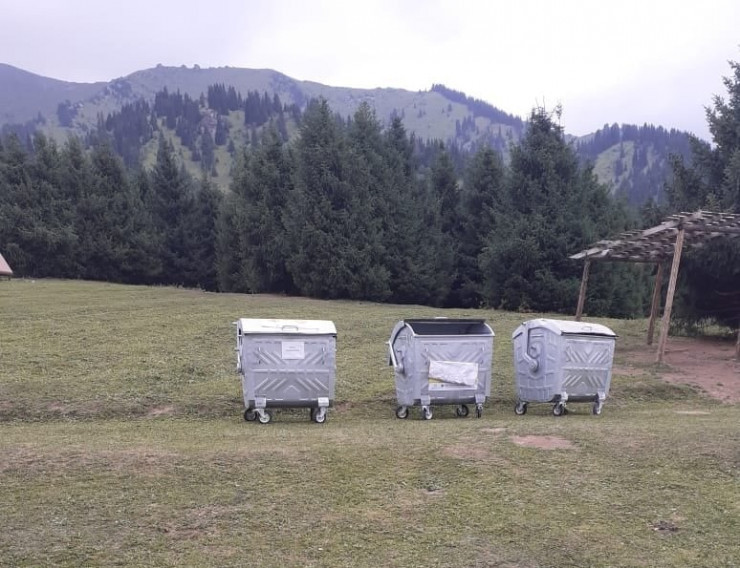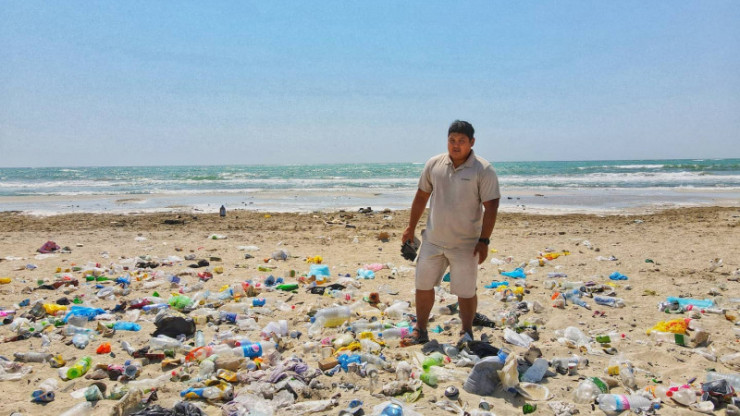17 March 2022
Director of the Kazakhstan Tourism Association Rashida Shaikenova told about the situation with ecotourism in Kazakhstan. In her opinion, Kazakhstan still has a lot of work to do in the direction of sustainable tourism.
“Domestic tourism statistics have grown, and the pandemic has played a role here. However, the tourist services market has not earned anything from this, as Kazakhstanis prefer to travel independently. The flip side of these self-organized trips is the polluted national parks. 37 tons of garbage were removed from the Issyk branch of the Ile-Alatau National Park last year alone. Think about this figure.
Another important aspect: we are turning from a country of missing toilets into a country of non-working toilets. We see a large number of toilets on the territory of national parks that are not connected to the water supply. Therefore, the toilet topic remains acute, and it is necessary to raise and solve this problem. The needs of a person should be given normal conditions,” she said at a round table on the topic “Problems of sustainable tourism development in the regions of Kazakhstan.”
The director of KTA told about how the situation has already changed by today. According to her, there are more and more conscious businessmen among the population of remote areas, which cannot be said about urban tourists who come to rest outside the city.
“Keeping our finger on the pulse, we have entered the European Union’s SUSTOKA project and are taking, perhaps, small but very important steps to develop sustainable tourism in cities. Yes, unfortunately, the legislation does not keep up with the trends of the modern world. But, fortunately, in the scattered articles of the law, we see how the state is laying the foundation for development.
 Фото www.facebook.com/profile.php?id=100015658265140
Фото www.facebook.com/profile.php?id=100015658265140
We also remember the times when the owners of guest houses and providers of local services in the regions themselves were pests of nature. But with the development of domestic tourism, business owners already understand that they need to protect nature, because it brings them money. They begin to take care of nature. So, the number of poachers has decreased, the number of animals and flora has increased, there are fewer and fewer people among the local population who leave garbage. But we, city dwellers who come on weekends and try to take everything that nature gives, of course, have not changed much. We need to form the right attitude to ecology, create a heat of intolerance towards those who do not respect nature. This is a matter of education,” she said.
In turn, expert Evgeny Mukhamedzhanov believes that in order for all tools to work for the benefit and on a large scale, it is necessary first of all to introduce the responsibility of akims at all levels.
“Control should be on their shoulders. This is the first and most important criterion. If the akims are not responsible for this, there will always be excuses and fines, and enterprises will smoke and pollute the environment. We can also launch a ranking of enterprises by their level of environmental friendliness. If it is explained to a small enterprise in areas far from the city that they will receive more profit, then they will seriously think about this problem,” the expert said.

Фото: Азамат Сарсенбаев
Evgeny also spoke about five tools that can help solve environmental problems and achieve sustainable tourism. He believes that if such tools are used in every business, the result will not take long to wait.
“We offer five specific tools. Firstly, in order to achieve the result, you need to create companies that will conduct an environmental audit. Secondly, to create training programs for employees. Third, IT is necessary to develop IT tools for collecting, processing and visualizing the results of work. The point is that people should see the result of the work done. The fourth is consulting, optimization of purchases, conducting eco-enterprises. The fifth is a mobile application that allows the user to become an eco-hero, perform simple tasks and see the result,” he says.
The problem of garbage in natural destinations of Kazakhstan always causes discussions. For example, last summer, during a walk in the mountains of the Ile-Alatau National Park, an Almaty resident filmed wild mountain goats digging up garbage left by tourists and chewing plastic bags. And earlier, a spontaneous garbage dump was formed on the shore of the Caspian Sea, which was filmed by blogger Azamat Sarsenbayev.
Информация взята с сайта Tengritravel.kz


















 Фото www.facebook.com/profile.php?id=100015658265140
Фото www.facebook.com/profile.php?id=100015658265140






